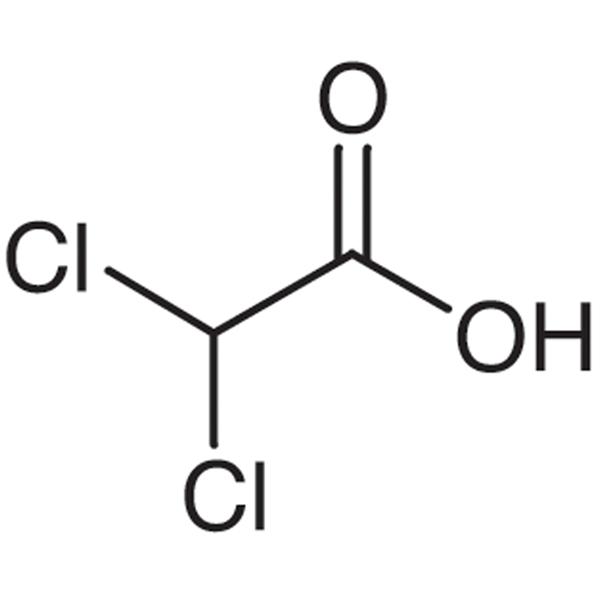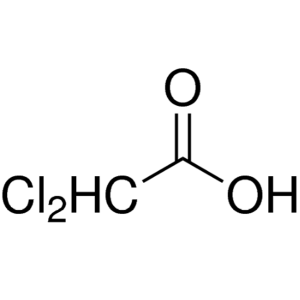Dichloroacetic Acid CAS 79-43-6 Purity >99.0% (GC)
Shanghai Ruifu Chemical Co., Ltd. is the leading manufacturer of Dichloroacetic Acid (CAS: 79-43-6) with high quality. Ruifu Chemical can provide worldwide delivery, competitive price, excellent service, small and bulk quantities available. Purchase Dichloroacetic Acid, Please contact: alvin@ruifuchem.com
| Chemical Name | Dichloroacetic Acid |
| Synonyms | 2,2-Dichloroacetic Acid; DCA; DCAA; DCA (Acid); Dichloroethanoic Acid |
| Stock Status | In Stock, Commercial Production |
| CAS Number | 79-43-6 |
| Molecular Formula | C2H2Cl2O2 |
| Molecular Weight | 128.94 g/mol |
| Melting Point | 9.0~11.0℃ |
| Boiling Point | 193.0~194.0℃ |
| Flash Point | 110℃ |
| Density | 1.56 g/mL at 25℃(lit.) |
| Refractive Index n20/D | 1.466(lit.) |
| Sensitive | Hygroscopic |
| Solubility | Completely Miscible with Water. Miscible with Ether, Alcohol |
| Stability | Stable. Incompatible with Strong Oxidizing Agents, Strong Bases, Strong Reducing Agents. Reacts with Water. Protect From Moisture. Hygroscopic. |
| Hazard Class | 8; Corrosive |
| Packing Group | II |
| COA & MSDS | Available |
| Sample | Available |
| Origin | Shanghai, China |
| Brand | Ruifu Chemical |
| Items | Specifications | Results |
| Appearance | Colorless to Light Yellow Clear Liquid | Complies |
| Dichloroacetic Acid Purity | >99.0% (GC) | 99.37% |
| Water by Karl Fischer | <0.50% | 0.25% |
| Chloroacetic Acid | <1.00% | <1.00% |
| Trichloroacetic Acid | <0.50% | <0.50% |
| Refractive Index n20/D | 1.463~1.468 | Complies |
| Infrared Spectrum | Consistent with Structure | Complies |
| Conclusion | The product has been tested and complies with the given specifications | |
Note: This product is low melting point solid,may change state in different environments (solid, liquid or semi-solid)
Package: Fluorinated Bottle, 25kg/Drum, 200kg/Drum, or according to customer's requirement.
Storage Condition: Keep the container tightly closed. Store in a cool, dry (2~8℃) and well-ventilated warehouse away from incompatible substances. Protect from moisture. Stored separately from oxidants and alkalis.
Shipping: Deliver to worldwide by air, by FedEx / DHL Express. Provide fast and reliable delivery.
How to Purchase? Please contact Dr. Alvin Huang: sales@ruifuchem.com or alvin@ruifuchem.com
15 Years Experience? We have more than 15 years of experience in the manufacture and export of a wide range of high quality pharmaceutical intermediates or fine chemicals.
Main Markets? Sell to domestic market, North America, Europe, India, Korea, Japanese, Australia, etc.
Advantages? Superior quality, affordable price, professional services and technical support, fast delivery.
Quality Assurance? Strict quality control system. Professional equipment for analysis include NMR, LC-MS, GC, HPLC, ICP-MS, UV, IR, OR, K.F, ROI, LOD, MP, Clarity, Solubility, Microbial limit test, etc.
Samples? Most products provide free samples for quality evaluation, shipping cost should be paid by customers.
Factory Audit? Factory audit welcome. Please make an appointment in advance.
MOQ? No MOQ. Small order is acceptable.
Delivery Time? If within stock, three days delivery guaranteed.
Transportation? By Express (FedEx, DHL), by Air, by Sea.
Documents? After sales service: COA, MOA, ROS, MSDS, etc. can be provided.
Custom Synthesis? Can provide custom synthesis services to best fit your research needs.
Payment Terms? Proforma invoice will be sent first after confirmation of order, enclosed our bank information. Payment by T/T (Telex Transfer), PayPal, Western Union, etc.
Risk Codes
R36/38 - Irritating to eyes and skin.
R40 - Limited evidence of a carcinogenic effect
R50 - Very Toxic to aquatic organisms
R35 - Causes severe burns
R36/37/38 - Irritating to eyes, respiratory system and skin.
R67 - Vapors may cause drowsiness and dizziness
R38 - Irritating to the skin
R65 - Harmful: May cause lung damage if swallowed
R48/20 -
R11 - Highly Flammable
R63 - Possible risk of harm to the unborn child
R50/53 - Very toxic to aquatic organisms, may cause long-term adverse effects in the aquatic environment.
Safety Description
S26 - In case of contact with eyes, rinse immediately with plenty of water and seek medical advice.
S45 - In case of accident or if you feel unwell, seek medical advice immediately (show the label whenever possible.)
S61 - Avoid release to the environment. Refer to special instructions / safety data sheets.
S36/37 - Wear suitable protective clothing and gloves.
S36 - Wear suitable protective clothing.
S16 - Keep away from sources of ignition.
S62 - If swallowed, do not induce vomitting; seek medical advice immediately and show this container or label.
S36/37/39 - Wear suitable protective clothing, gloves and eye/face protection.
UN IDs UN 1764 8/PG 2
WGK Germany 2
RTECS AG6125000
FLUKA BRAND F CODES 3-10
TSCA Yes
HS Code 2915400090
Hazard Class 8
Packing Group II
Toxicity LD50 orally in rats: 2.82 g/kg (Smyth)
Dichloroacetic Acid (CAS: 79-43-6) is a simple halogenated acetic acid compound with two chlorides at the α-position. is a corrosive, combustible, colorless, strong liquid acid with a pungent odor. It is soluble in water and alcohol. Dichloroacetic acid (Ka=5.14 × 10-2) is a stronger acid than chloroacetic acid. Most chemical reactions are similar to those of chloroacetic acid, although both chlorine atoms are susceptible to reaction. Dichloroacetic acid is much more stable to hydrolysis than chloroacetic acid. It is a reactive intermediate in organic synthesis. Dichloroacetic acid is prepared by the chlorination of acetic acid.
Dichloroacetic Acid (CAS: 79-43-6) is used in organic synthesis and pharmaceutical manufacturing, dye intermediates. Used as pesticide and pharmaceutical intermediates.
Dichloroacetic Acid is used as an intermediate to make other chemicals such as its salts and esters.
Dichloroacetic Acid is also used as a fungicide, a medication; and a chemical intermediate in pharmaceuticals
Dichloroacetic Acid is involved as a test reagent for fiber analysis and a disinfectant.
Dichloroacetic Acid (CAS: 79-43-6) is probably hygroscopic. Dichloroacetic Acid reacts with water or steam. Dichloroacetic Acid is incompatible with strong oxidizing agents, strong bases and strong reducing agents.
TOXIC; inhalation, ingestion or skin contact with material may cause severe injury or death. Contact with molten substance may cause severe burns to skin and eyes. Avoid any skin contact. Effects of contact or inhalation may be delayed. Fire may produce irritating, corrosive and/or toxic gases. Runoff from fire control or dilution water may be corrosive and/or toxic and cause pollution.
Combustible material: may burn but does not ignite readily. When heated, vapors may form explosive mixtures with air: indoors, outdoors and sewers explosion hazards. Contact with metals may evolve flammable hydrogen gas. Containers may explode when heated. Runoff may pollute waterways. It is in the category of dangerous product stipulated by the Ministry of Transportation.
Moderately toxic by skin contact and ingestion. It is corrosive to the skin, eyes, and mucous membranes. Questionable carcinogen with experimental tumorigenic data. Will react with water or steam to produce toxic and corrosive fumes. When heated to decomposition it emits toxic fumes of Cl-. See also CHLORIDES.
UN1764 Dichloricacetic Acid, Hazard class: 8; Labels: 8-Corrosive material.
-
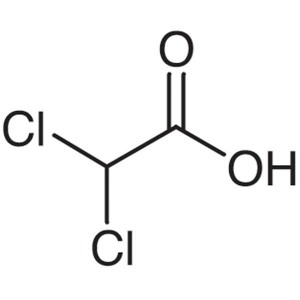
Dichloroacetic Acid CAS 79-43-6 Purity >99.0% (GC)
-
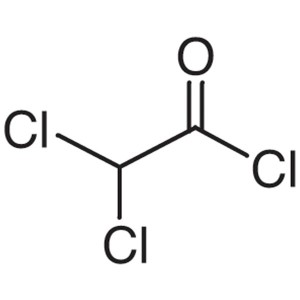
Dichloroacetyl Chloride CAS 79-36-7 Purity >99....
-
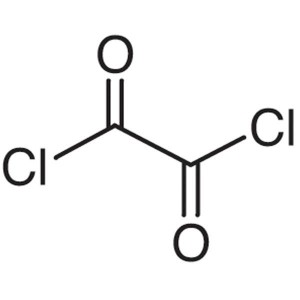
Oxalyl Chloride CAS 79-37-8 Purity >99.0% (GC) ...
-
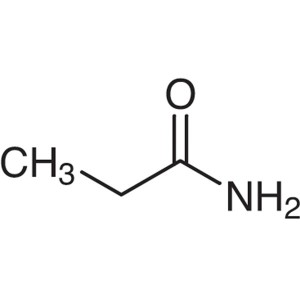
Propionamide CAS 79-05-0 Purity ≥99.0% (HPLC)
-
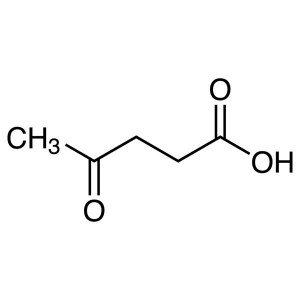
Levulinic Acid CAS 123-76-2 Purity >99.0% (GC) ...
-
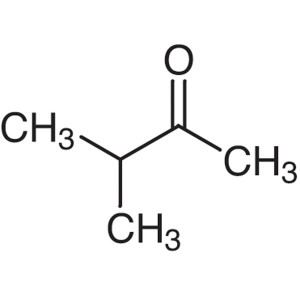
3-Methyl-2-Butanone CAS 563-80-4 Purity >99.5% ...
-
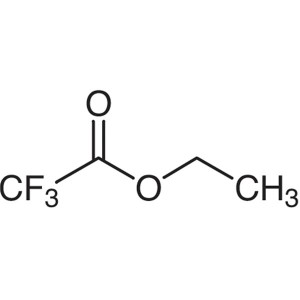
Ethyl Trifluoroacetate CAS 383-63-1 Purity >99....
-
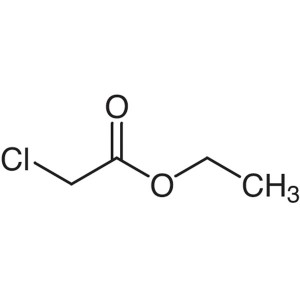
Ethyl Chloroacetate CAS 105-39-5 Purity >99.0% ...
-
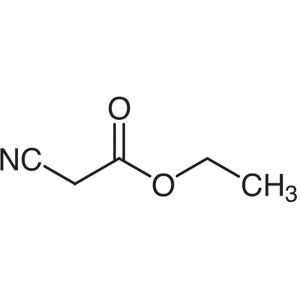
Ethyl Cyanoacetate CAS 105-56-6 Purity >99.5% (GC)
-
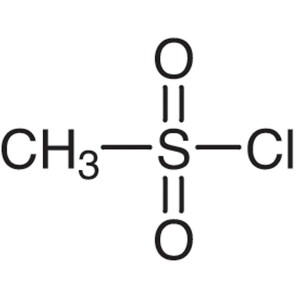
Methanesulfonyl Chloride (MSC) CAS 124-63-0 Pur...
-
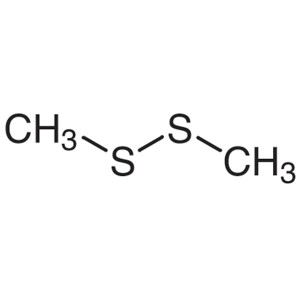
Dimethyl Disulfide (DMDS) CAS 624-92-0 Purity >...
-
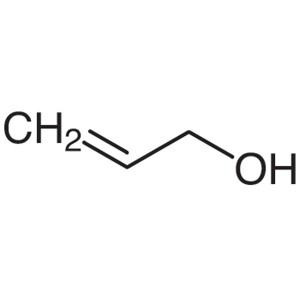
Allyl Alcohol CAS 107-18-6 Purity >99.5% (GC)
-
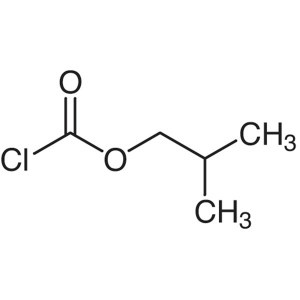
Isobutyl Chloroformate CAS 543-27-1 Purity >99....
-
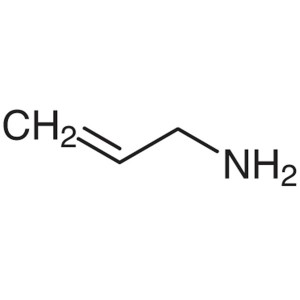
Allylamine CAS 107-11-9 Purity >99.0% (GC) (T)
-
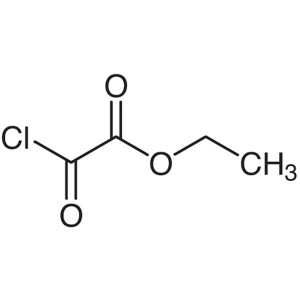
Ethyl Chlorooxoacetate CAS 4755-77-5 Purity >98...
-
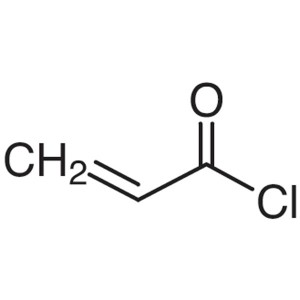
Acryloyl Chloride CAS 814-68-6 Purity >99.0% (G...

